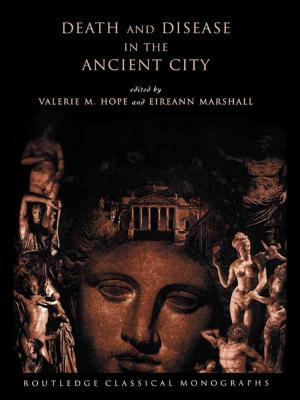John Lowin and the English Theatre, 1603–1647
Acting and Cultural Politics on the Jacobean and Caroline Stage
Nonfiction, Entertainment, Theatre, Performing Arts| Author: | Barbara Wooding | ISBN: | 9781317110644 |
| Publisher: | Taylor and Francis | Publication: | May 6, 2016 |
| Imprint: | Routledge | Language: | English |
| Author: | Barbara Wooding |
| ISBN: | 9781317110644 |
| Publisher: | Taylor and Francis |
| Publication: | May 6, 2016 |
| Imprint: | Routledge |
| Language: | English |
Even for scholars who have devoted their careers to the early modern theatre, the name John Lowin may not instantly evoke recognition-until now, the actor's life and contribution to the theatre of the period has never been the subject of a full-length publication. In this study, Barbara Wooding provides a comprehensive overview of the life and times of Lowin, a leader of the King's Men's Company and one of the greatest actors of the seventeenth century. She examines his involvement in the Jacobean/Caroline world as performer, citizen and company manager, and contextualizes his life and career within the socio-economic and political framework of the period. Although references to him in the archives are patchy and sporadic, information about his activities within the King's Men's Company is well documented. In the course of analysing less familiar plays of the period and the characters Lowin played in them, Wooding supplements critical understanding of the scope and range of Caroline drama. Because Lowin's career burgeoned after Shakespeare's and Burbage's death, his life in Southwark and his career with the same company furnishes the opportunity for an examination of the changing status of actors, and the exercising of their skills within the drama of the later playhouse period.
Even for scholars who have devoted their careers to the early modern theatre, the name John Lowin may not instantly evoke recognition-until now, the actor's life and contribution to the theatre of the period has never been the subject of a full-length publication. In this study, Barbara Wooding provides a comprehensive overview of the life and times of Lowin, a leader of the King's Men's Company and one of the greatest actors of the seventeenth century. She examines his involvement in the Jacobean/Caroline world as performer, citizen and company manager, and contextualizes his life and career within the socio-economic and political framework of the period. Although references to him in the archives are patchy and sporadic, information about his activities within the King's Men's Company is well documented. In the course of analysing less familiar plays of the period and the characters Lowin played in them, Wooding supplements critical understanding of the scope and range of Caroline drama. Because Lowin's career burgeoned after Shakespeare's and Burbage's death, his life in Southwark and his career with the same company furnishes the opportunity for an examination of the changing status of actors, and the exercising of their skills within the drama of the later playhouse period.















